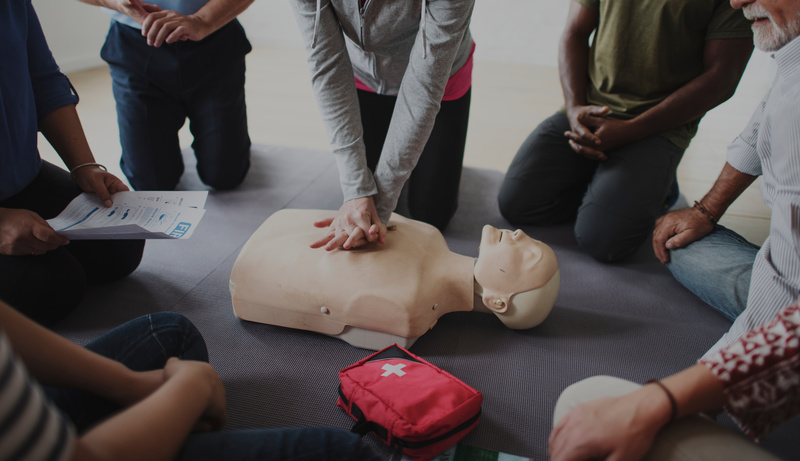Are you prepared to be the hero in an emergency situation?
Enrolling in a First Aid Course can be the first step to ensuring that you are.
Advertisements


Advantages and Disadvantages of a First Aid Course
In an ideal world, everyone would be prepared to act in the face of medical emergencies.
First aid courses are designed to provide this training, but like any specialized training, they have positive and negative points that must be meticulously evaluated.
This in-depth study seeks to explore these nuances to help inform decision-making.
Advantages:
- Empowerment through Knowledge: The training provides practical skills to manage a range of emergency situations, from common injuries such as cuts and burns to critical conditions such as heart attacks and traumatic accidents. It empowers the individual, giving them the confidence to act when necessary.
- Positive Community Impact: By being trained to provide first aid, you contribute to the safety and well-being of your community. This can help strengthen community bonds and create a safer environment for everyone.
- Reducing Response Time in Emergencies: In many cases, early intervention until professional help arrives can be decisive, reducing the risk of permanent complications or even death.
- Expansion of Professional Opportunities: In many fields of work, especially those involving children, the elderly, or physical activities, first aid certification is seen as a desirable or even necessary qualification.
Disadvantages:
- Emotional and Psychological Challenge: The responsibility of providing emergency care can be emotionally draining. The stress of performing under pressure and dealing with the potential for negative outcomes can take a toll on a first responder’s mental health.
- Legal Risks: Although rare, the legal implications of providing first aid can be a concern. In many places, laws such as the Good Samaritan Law protect first responders, but it is essential to know and understand these laws before taking action.
- Training and Certification Maintenance Costs: First aid courses require an initial investment and, to maintain certification, they often require periodic refresher courses, which can represent an ongoing cost.
- Technical Limitations: While first aid training provides the basics, it is no substitute for professional medical knowledge. In some emergencies, a lack of advanced equipment or specialized knowledge can limit the effectiveness of first aid actions.
Conclusion:
First aid courses are undoubtedly beneficial, providing vital life-saving skills.
However, the decision to train must be made with full awareness of the emotional, legal and financial responsibilities involved.
First aid training is more than just learning techniques; it's a commitment to the safety and well-being of those around you.
Consider these factors carefully to determine if this is the right choice for you and your community.
First Aid Course: An Indispensable Skill
In a world where accidents can happen at any time, being prepared is more than an option; it's a necessity.
A First Aid course not only equips you with the skills needed to respond to medical emergencies; it also transforms the way you view safety in everyday life.
Through this training, you will learn practical life-saving techniques, from cardiopulmonary resuscitation (CPR) to treating burns and cuts. By the end of the course, you will not only be able to protect yourself, but also those around you.
Don't wait until it's too late. Sign up for a First Aid Course today and be a hero in your everyday life.
Course Website
